Is a new global monetary and payments system established and developed by BRICS promising?
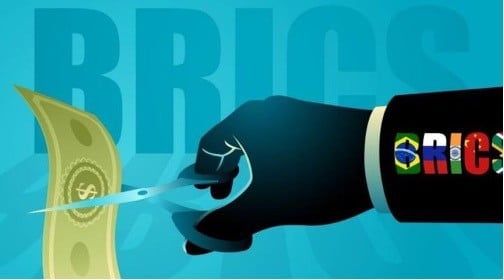 |
| BRICS power is 'backed by money', rebuilding the global non-dollarized monetary system. Illustration photo. (Source: Nasdaq) |
Amid heated debates and high optimism about establishing a strong economic “force”, BRICS (Brazil, Russia, India, China and South Africa) and its new members and partners are hoping to usher in a new era of de-dollarization of the global economic system.
It is likely that at the upcoming BRICS Summit in October 2024 in Kazan, Republic of Tatarstan, BRICS will officially introduce a new currency, and at the same time establish another international payment system.
According to international media, in an effort to achieve common determination to achieve these goals, BRICS leaders have been considering for many months the effectiveness and importance of new mechanisms to create a balanced approach to rebuilding the monetary system that is currently dominated by the US dollar and the way the West manipulates it in the global market.
Important turning point
With just a few months to go before a collective, landmark decision on this important issue, BRICS said the close cooperation between member states, has demonstrated their readiness to engage in a consistent and cooperative dialogue, with the alliance of partners, as well as the like-minded international business community.
In line with the plans and implementation of the resolutions adopted at the XV BRICS Summit in South Africa, a number of initiatives under the leadership of Russia-led BRICS have made significant progress and achievements.
And in fact, despite months of dialogue and back-and-forth, the BRICS monetary system reconstruction plan continues to attract interest and cooperation, especially from most developing countries in the Global South, opening up prospects for further development of these economic initiatives.
A related issue is that most of the aforementioned influential countries, which have growing discontent with the West, have expressed interest in the ideals and aspirations of BRICS.
According to information in reputable global media, more than 30 countries have expressed their willingness to join BRICS. Interest is still growing. However, under the leadership of Russia, in the year of its BRICS presidency, the addition of new members has been put on hold. Russian Foreign Minister Sergey Lavrov explained that "the methods of expanding the group must be discussed jointly" at future summits.
The creation of a common payment mechanism will be the main topic of discussion at the upcoming summit, which will be the last event of Russia's presidency. "Active efforts are underway to create a financial payment mechanism that would facilitate cooperation between BRICS members and maintain their sovereign economic and trade exchanges. This issue is at the top of the agenda, as all members of the group consider it very important," Russian media stressed.
In late July, news broke that BRICS members had developed a system similar to the Society for Worldwide Interbank Financial Telecommunication (SWIFT) – the system that Russia was disconnected from after the military operation in Ukraine broke out.
Accordingly, a new mechanism will operate on the basis of the BRICS Bridge supranational payments. Payments will be made in the national currencies of BRICS member countries, while the New Development Bank (NDB) will act as a platform for integration, conversion and clearing.
However, according to Viktoria Panova, head of the expert council overseeing Russia's presidency, it is now important to discuss how new BRICS members will interact with the NDB.
As BRICS continues to challenge the dominance of the US dollar in global markets, the creation of a payments system has become a top priority, with the financial project seriously aiming for a debut at the upcoming BRICS Summit (October 2024).
Go ahead and bypass SWIFT this way
Accordingly, BRICS Bridge will be a payment platform that will replace the SWIFT system, which is dependent on the West. More specifically, its establishment will allow developing countries, especially in the Southern Hemisphere, to limit or limit their dependence on the US dollar, and instead promote the use of their national currencies for trade payments.
The New Development Bank (NDB), established by BRICS members in 2015 as an alternative to multilateral financial institutions, has now welcomed four new members: Bangladesh, the United Arab Emirates (UAE), Uruguay and Egypt.
Considering the vision of the BRICS governments when establishing the NDB, from its formation, development, and admission of many new members over the past 10 years, some analysts believe that the influence of BRICS has increased dramatically as the group embarked on a plan to create a new type of financial institution, replacing traditional international financial organizations.
There has also been debate and academic research on the BRICS Bank, from its inception to the present stage - as the NDB enters its second decade of development. In an analytical article published in July, scholar Gregory T. Chin of the Center for Global Development Policy at Boston University (USA), addressed many questions about a decade of formation and development of the NDB platform. In it, he mentioned the achievements of this bank and asked what makes the NDB's agenda and governance unique; leading the way in the goal of de-dollarization and increasing multipolarity.
On the subject of adding members to the NDB, renowned economist Jim O'Neill - often referred to as the "father" of the BRIC name - stressed the importance of finding criteria and procedures for expanding membership. He mentioned the added value of combining common goals and specific objectives, which would be useful for the overall planning of BRICS in the future. For example, Mr. O'Neill appreciated the addition of major oil countries in the Gulf and the Middle East to the NDB membership (in 2023) which would be useful for efforts to promote the use of local currencies.
Assessing the NDB plan, many experts also highly appreciated its boldness and strategy, whether it is the move to add more members, open regional offices, reach out and strengthen partnerships, or efforts in tangible goals, such as promoting the use of local currencies, addressing climate change and environmental protection, as well as promoting sustainable infrastructure development and renewable energy.
In early August, some BRICS members and policy experts and scholars admitted that "the development of the BRICS payment platform has reached an advanced stage" and warned that "if it continues as planned, it could completely explode like a "blockbuster" globally.
These experts believe that BRICS Bridge is likely to have the impact that BRICS leaders expect because most members have declared their support for a de-dollarization approach or process and promote trade within the bloc - which would be an unforeseeable scenario for the future of the Western-dominated currency.
In addition, the success of the BRICS Bridge could contribute greatly to the overall strategy of boosting trade transactions and fundamentally strengthening emerging relationships among members of the group of emerging economies in the long term.
Source: https://baoquocte.vn/suc-manh-brics-duoc-dam-bao-bang-tien-kha-nang-tai-thiet-he-thong-tien-te-phi-usd-hoa-toan-cau-282807.html


![[Photo] Prime Minister Pham Minh Chinh and Prime Minister of the Kingdom of Thailand Paetongtarn Shinawatra attend the Vietnam-Thailand Business Forum 2025](https://vphoto.vietnam.vn/thumb/1200x675/vietnam/resource/IMAGE/2025/5/16/1cdfce54d25c48a68ae6fb9204f2171a)









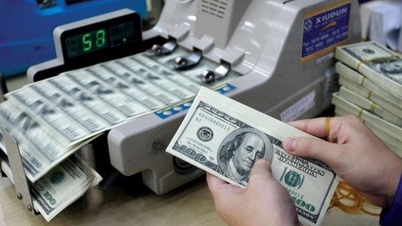


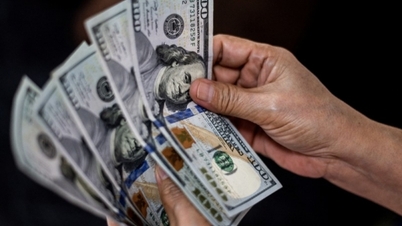
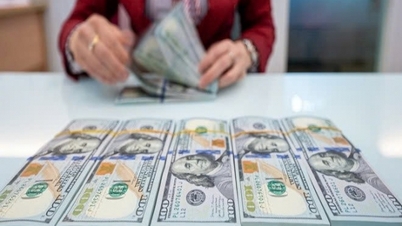
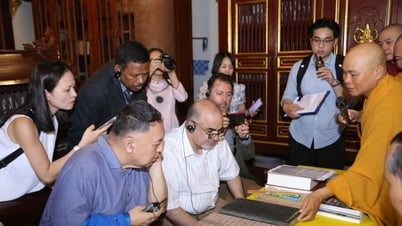
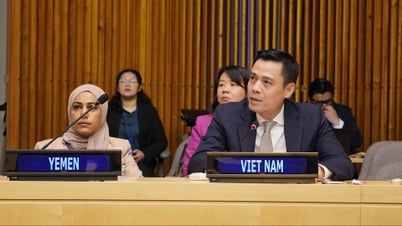
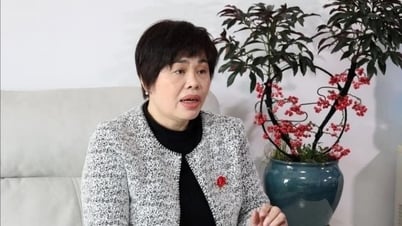
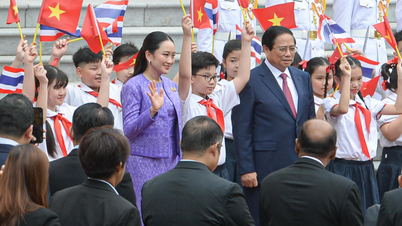

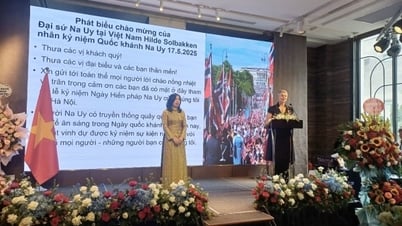






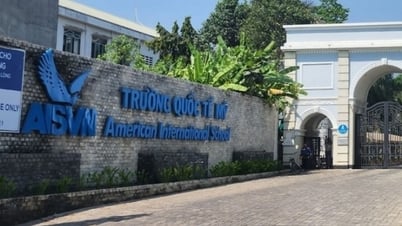





![[Photo] President Luong Cuong receives Prime Minister of the Kingdom of Thailand Paetongtarn Shinawatra](https://vphoto.vietnam.vn/thumb/1200x675/vietnam/resource/IMAGE/2025/5/16/52c73b27198a4e12bd6a903d1c218846)




























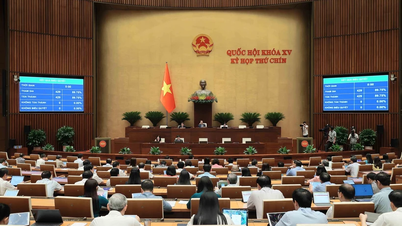












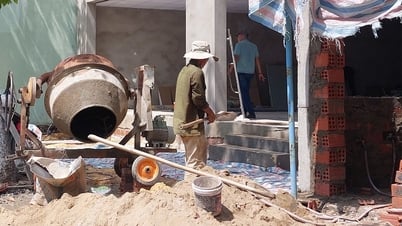

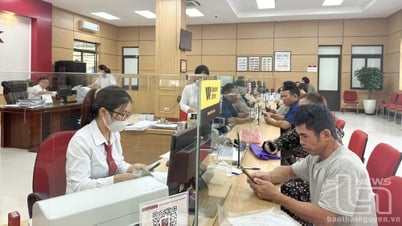



















Comment (0)